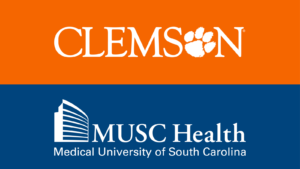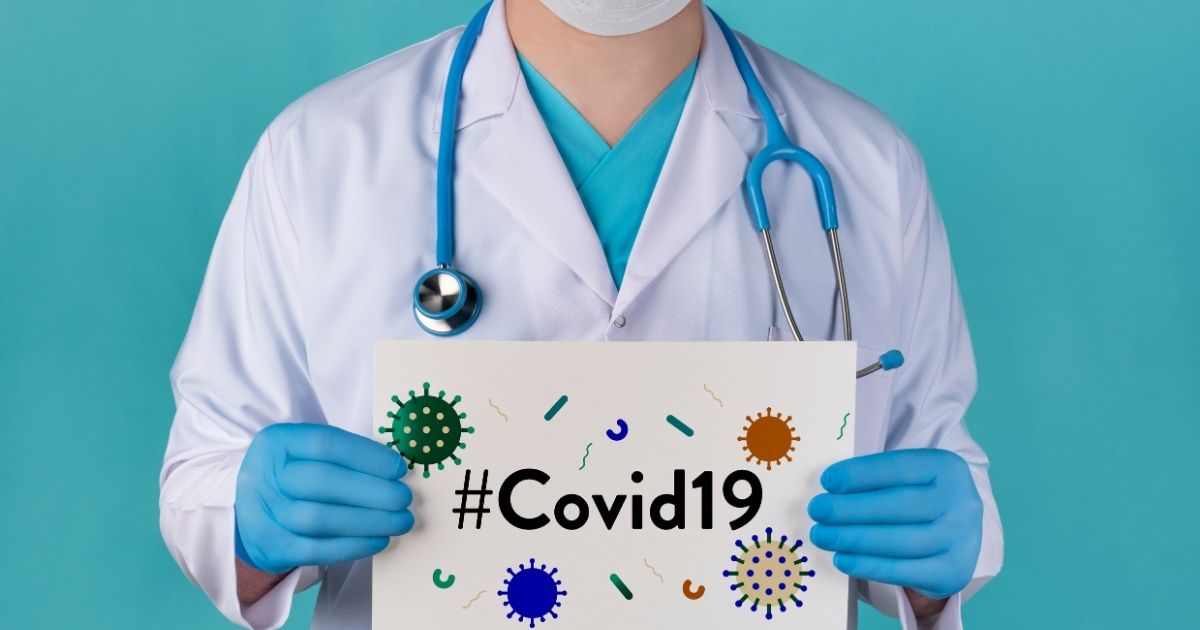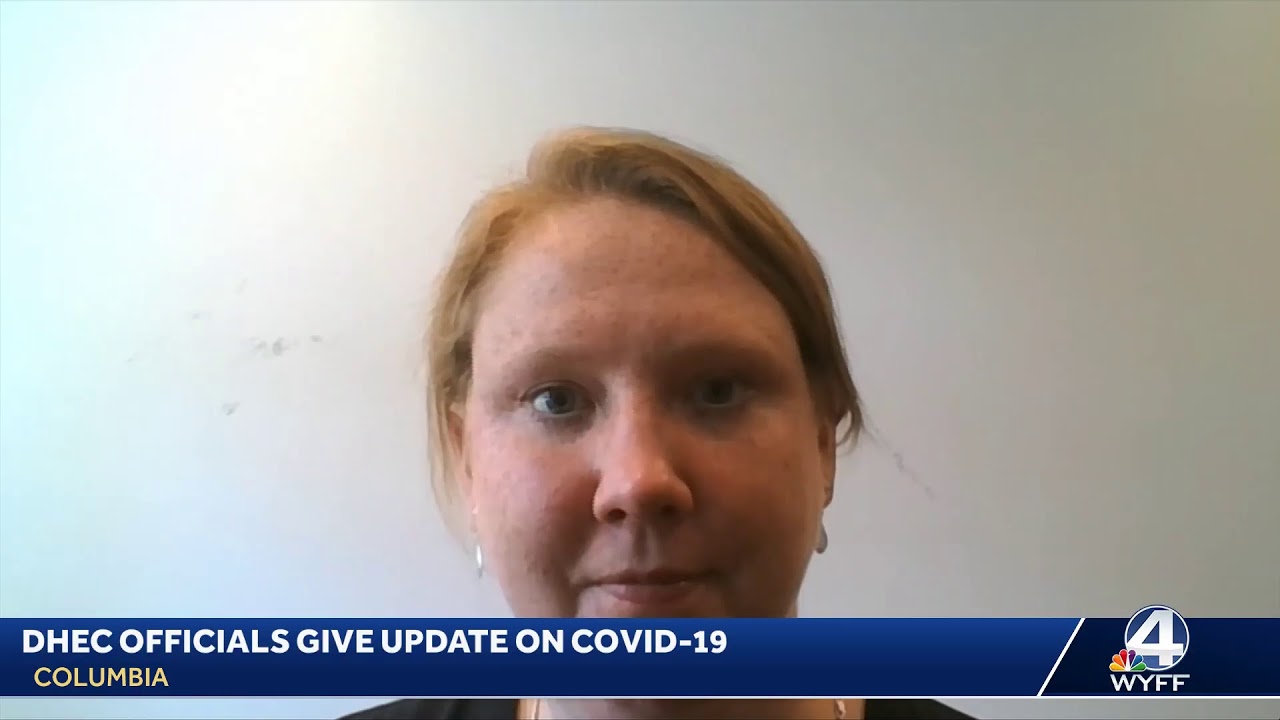Charleston and Clemson, S.C. – Healthy Me – Healthy SC (HMHSC), a program developed in partnership by the Medical University of South Carolina (MUSC) and Clemson University, will provide COVID-19 testing support to the rural and underserved areas of the Midlands and Upstate regions of South Carolina.
Across the state, rural and underserved communities experience disparities in access to COVID-19 screening, testing, prevention and treatment. With the reinvigoration of the program and a focus on the state’s current public health crisis, HMHSC will deploy a mobile testing team to conduct screenings and collections in rural and underserved areas, focusing on the Upstate and the Midlands. Mobile testing sites through HMHSC kicked off in Walhalla, South Carolina, on Thursday, July 30, with the goal of providing weekly screening sessions over the course of the next six months.
Testing sites will be set up at various locations to collect COVID-19 respiratory specimens from both walk-up and drive-through patients. Pre-screening will not be required. Members of the community are asked to bring photo identification and an insurance card if they have one. Insurance is not required to be seen; however, the CARES Act does require MUSC to bill insurance providers if patients do have insurance. The test is free to the community.
Faculty members from multiple departments at Clemson and MUSC are engaged in these statewide efforts. Clemson University has combined resources and experts into a multi-disciplinary team charged with working in partnership with MUSC to implement the HMHSC COVID-19 testing initiative for the state. The Cooperative Extension Services will continue to coordinate screening sites and market and promote screening clinics. Concurrently, the Clemson Joseph F. Sullivan Center (JFSC) will operate the testing team, which will serve as an independent screening unit in support of Clemson’s contribution to the MUSC mission.
The mobile setup allows care providers to rotate sites, reaching underserved and rural populations experiencing barriers to health care access for COVID-19 screening and testing. MUSC Health was first in the nation to launch a combined virtual urgent care platform and drive-through specimen collection site. Now, it is sharing a version of that model with partners to expand testing to more communities.
Michelle Parisi, director of Nutrition and Health Extension Programs and assistant professor in the Department of Food, Nutrition and Packaging Sciences at Clemson said, “Clemson Cooperative Extension is happy to be a part of the HMHSC holistic approach to health and well-being for South Carolina citizens. With educational programs established in every county of the state, the Health Extension has been a trusted source of scientific information for rural and underserved communities for over 100 years. These longstanding relationships assist HMHSC in bridging the gap between health resources and underserved communities in our state.”
After more than a year of successful pilot programs, HMHSC was founded in 2019 by MUSC and Clemson University as a collaborative, statewide program to improve health care access and address health inequities. HMHSC is made possible by funds from the South Carolina General Assembly and the support of Gov. Henry McMaster and benefits from resources designated explicitly for health innovations. The program leverages MUSC and Clemson’s statewide reach and collective expertise in education, health and community outreach to expand health care options to underserved regions of the state.
Since the inception of the program, HMHSC has focused on areas of need, including infant mortality, childhood obesity, cancer prevention and pain management. Over the past two years, these initiatives were targeted in rural Anderson, Barnwell and Williamsburg counties, the program’s pilot counties. The program extends traditional clinic services by deploying a mobile health van at HMHSC sites, which increases the reach and impact of each location. In addition, access to MUSC’s robust telehealth network and coordination with Clemson University Cooperative Extension locations at each HMHSC site enable the expertise of health care specialists to reach residents in rural and underserved parts of South Carolina. Under the new leadership of David Sudduth, executive director of HMHSC and program manager Kapri Kreps Rhodes, the program will now be extending its services by offering support for communities in need of COVID-19 testing.
“Our mission is to build healthier communities by offering innovative solutions that establish partnerships and leverage resources throughout South Carolina. And our response to COVID-19 allows us to make both an immediate and lasting impact on the health of South Carolina citizens,” said Sudduth.
The HMHSC COVID-19 testing initiative is supported by a subgrant that falls under recent legislation to expand testing programs throughout the state. On May 18, the South Carolina General Assembly and Gov. McMaster called upon MUSC, the Department of Health and Environmental Control and the South Carolina Hospital Association to develop a statewide testing plan for COVID-19. The Centers for Disease Control and Prevention report a disproportionate number of COVID-19 positive cases and virus-related deaths in racial and ethnic minority groups due to contributing factors such as living in rural communities that are geographically distant from social and medical resources for testing and treating symptoms of COVID-19. Testing is critical to preventing the spread of the virus by informing treatment protocols, addressing hotspots and tracking the virus’s progression. Partnering hospitals, health systems, clinics and programs like HMHSC are essential to expanding testing opportunities.
The South Carolina General Assembly has designated $25 million to expand testing programs in rural communities and among those who are at higher risk of becoming seriously ill or dying from the virus. Vulnerable populations include the elderly; people who have underlying conditions, like heart disease and diabetes; and African Americans who, due to well-documented health disparities, are more likely to suffer from one of these conditions and have much less access to health care. HMHSC will contribute to the overarching goal of statewide testing that results in a minimum of 2% of a demographically representative sample of the South Carolina population tested each month.
“Partnerships are about joining forces to create the greatest impact,” said Caroline Brown, chief external affairs officer at MUSC. “MUSC and Clemson’s complementary strengths and mutual goal to improve health is what inspired the creation of HMHSC. Expanding the collaboration to provide COVID-19 testing to South Carolinians who are at higher risk for contracting the disease due to social determinants of health shows that we are adapting to fight COVID-19 in novel ways together.”
For more information on COVID-19 mobile testing sites visit musc.co/testing or facebook.com/ClemsonHealthExtension.
Student Covid-19 Testing at Clemson Being Expanded
Clemson University and the Medical University of South Carolina (MUSC) have teamed up with the goal of creating a national model for student health care and well-being initiatives, focused not only on the immediate needs of the community during the COVID-19 pandemic but also the ongoing health demands of the Clemson student population.
COVID-19 TESTING
As Clemson continues to prepare for the Fall semester, the University previously announced anyone who works for, lives at or is enrolled in a Clemson University program or facility must secure a negative COVID-19 test result within five days prior to returning to campus or other University location for the Fall semester.
Clemson and MUSC have established a mobile testing site near campus and next week will launch a limited testing process for employees currently working on campus.
For students, faculty and staff returning to campus in August, exact details related to technological, medical and financial processes are still being finalized. Those details, including free testing locations and transmission of records from tests administered outside of South Carolina, will be announced in the coming days.
STUDENT HEALTH CARE SERVICES EXPANSION
The Clemson and MUSC collaboration on student health will focus on four key concepts:
- Health and well-being
- Innovation and connection
- Quality and value
- Patient experience and convenience
Examples of partnership benefits for students over the phased, multi-year collaboration include 24/7 access to virtual urgent care, expansion of telehealth, telepsychiatry and telecounseling services, integrated electronic health records, improved availability and reduced wait times for clinical care.
Student Health Services at Clemson is an integrated, outpatient organization comprised of three divisions: Medical Services, Counseling and Psychological Services (CAPS) and Healthy Campus. Clemson’s Redfern Health Center is one of 17 student health centers in the United States accredited by The Joint Commission and is also accredited by the American Psychological Association for its doctoral internship program and the Commission on Office Laboratory Accreditation for laboratory services.
“This is a great development for our students because health care will be more accessible and convenient,” said Interim Vice President for Student Affairs and Dean of Students Chris Miller. “This is especially important during the ongoing COVID situation and with the upcoming flu season. The level of care in Redfern Health Center is already exceptional and this collaboration will only continue to improve that level with better access to specialists in a variety of fields that will benefit our students.”
“MUSC and Clemson enjoy a long history of academic and community collaborations,” said Patrick J. Cawley, M.D., CEO of MUSC Health and Vice President for Health Affairs, University. “This student health collaboration allows us to expand our relationship and jointly contribute to the high-quality and convenient care that students appreciate. The 24/7 virtual urgent care will be a tremendous asset as Clemson students come back to campus in the Fall and as we continue our fight against COVID-19.”
MUSC is in the process of hiring an on-site operations manager to work alongside Dr. George Clay, Redfern’s executive director. Clay has been Redfern’s executive director since February 2000 and has seen the University’s enrollment grow exponentially during that time.
“One of the things I am really proud of is that we have a team at Redfern that is always looking for ways to improve,” Clay said. “That is an important aspect of our culture and we will approach the partnership in that spirit.”
The most recent full academic year data showed nearly 50,000 total provider visits by Clemson students, including 13,464 unique patients. In addition, Redfern’s pharmacy filled nearly 33,000 prescriptions and its lab conducted roughly 22,000 tests. Over the last five years, CAPS has seen an increase of 35 percent in patients participating in initial counseling sessions.
One of the first initiatives planned is virtual urgent care, which will be available 24 hours a day and seven days a week. The scope of care provided through the service will be limited, but Clay cited the ability to be open “around the clock” as a need identified by both students and parents.
“We have seen demonstrations on how MUSC manages the visits and it’s going to be a great addition,” he said. “It will meet immediate needs and may free up our providers during regular hours of operation to better keep up with growing demand.”
Once its operations manager is on board, MUSC will conduct a thorough assessment of Redfern’s current services, offer recommendations for improvement and implement any agreed upon initiatives.
“We pride ourselves on providing an integrated system of care,” Clay said. “We know it’s not going to be business as usual this fall in the context of the COVID-19 pandemic. The Redfern team will strive to build the partnership with MUSC while identifying opportunities and implementing improvements that will benefit the health and well-being of Clemson University students.”











